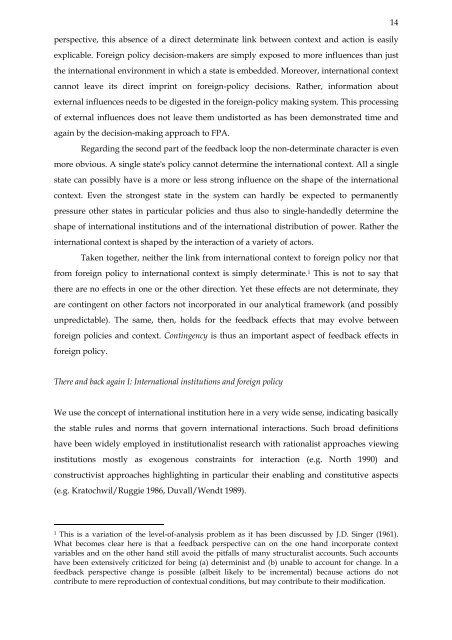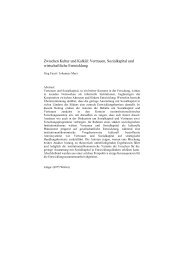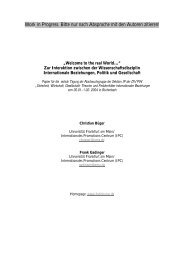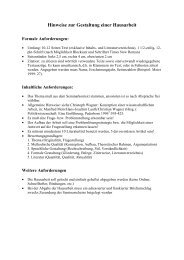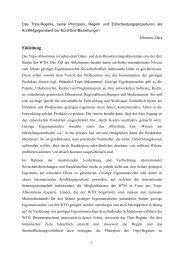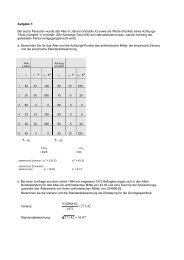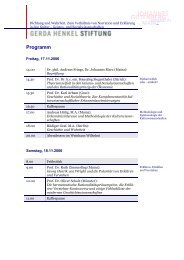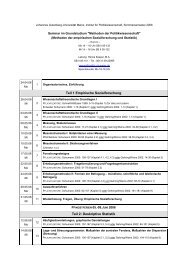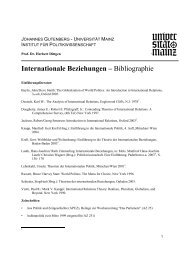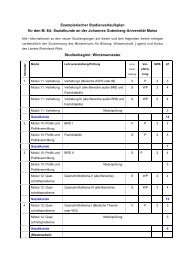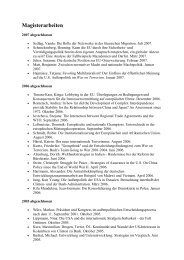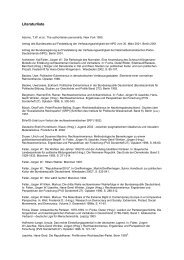Feedback Effects in Foreign Policy: A Framework for Analysis
Feedback Effects in Foreign Policy: A Framework for Analysis
Feedback Effects in Foreign Policy: A Framework for Analysis
Create successful ePaper yourself
Turn your PDF publications into a flip-book with our unique Google optimized e-Paper software.
14<br />
perspective, this absence of a direct determ<strong>in</strong>ate l<strong>in</strong>k between context and action is easily<br />
explicable. <strong>Foreign</strong> policy decision-makers are simply exposed to more <strong>in</strong>fluences than just<br />
the <strong>in</strong>ternational environment <strong>in</strong> which a state is embedded. Moreover, <strong>in</strong>ternational context<br />
cannot leave its direct impr<strong>in</strong>t on <strong>for</strong>eign-policy decisions. Rather, <strong>in</strong><strong>for</strong>mation about<br />
external <strong>in</strong>fluences needs to be digested <strong>in</strong> the <strong>for</strong>eign-policy mak<strong>in</strong>g system. This process<strong>in</strong>g<br />
of external <strong>in</strong>fluences does not leave them undistorted as has been demonstrated time and<br />
aga<strong>in</strong> by the decision-mak<strong>in</strong>g approach to FPA.<br />
Regard<strong>in</strong>g the second part of the feedback loop the non-determ<strong>in</strong>ate character is even<br />
more obvious. A s<strong>in</strong>gle state's policy cannot determ<strong>in</strong>e the <strong>in</strong>ternational context. All a s<strong>in</strong>gle<br />
state can possibly have is a more or less strong <strong>in</strong>fluence on the shape of the <strong>in</strong>ternational<br />
context. Even the strongest state <strong>in</strong> the system can hardly be expected to permanently<br />
pressure other states <strong>in</strong> particular policies and thus also to s<strong>in</strong>gle-handedly determ<strong>in</strong>e the<br />
shape of <strong>in</strong>ternational <strong>in</strong>stitutions and of the <strong>in</strong>ternational distribution of power. Rather the<br />
<strong>in</strong>ternational context is shaped by the <strong>in</strong>teraction of a variety of actors.<br />
Taken together, neither the l<strong>in</strong>k from <strong>in</strong>ternational context to <strong>for</strong>eign policy nor that<br />
from <strong>for</strong>eign policy to <strong>in</strong>ternational context is simply determ<strong>in</strong>ate. 1 This is not to say that<br />
there are no effects <strong>in</strong> one or the other direction. Yet these effects are not determ<strong>in</strong>ate, they<br />
are cont<strong>in</strong>gent on other factors not <strong>in</strong>corporated <strong>in</strong> our analytical framework (and possibly<br />
unpredictable). The same, then, holds <strong>for</strong> the feedback effects that may evolve between<br />
<strong>for</strong>eign policies and context. Cont<strong>in</strong>gency is thus an important aspect of feedback effects <strong>in</strong><br />
<strong>for</strong>eign policy.<br />
There and back aga<strong>in</strong> I: International <strong>in</strong>stitutions and <strong>for</strong>eign policy<br />
We use the concept of <strong>in</strong>ternational <strong>in</strong>stitution here <strong>in</strong> a very wide sense, <strong>in</strong>dicat<strong>in</strong>g basically<br />
the stable rules and norms that govern <strong>in</strong>ternational <strong>in</strong>teractions. Such broad def<strong>in</strong>itions<br />
have been widely employed <strong>in</strong> <strong>in</strong>stitutionalist research with rationalist approaches view<strong>in</strong>g<br />
<strong>in</strong>stitutions mostly as exogenous constra<strong>in</strong>ts <strong>for</strong> <strong>in</strong>teraction (e.g. North 1990) and<br />
constructivist approaches highlight<strong>in</strong>g <strong>in</strong> particular their enabl<strong>in</strong>g and constitutive aspects<br />
(e.g. Kratochwil/Ruggie 1986, Duvall/Wendt 1989).<br />
1 This is a variation of the level-of-analysis problem as it has been discussed by J.D. S<strong>in</strong>ger (1961).<br />
What becomes clear here is that a feedback perspective can on the one hand <strong>in</strong>corporate context<br />
variables and on the other hand still avoid the pitfalls of many structuralist accounts. Such accounts<br />
have been extensively criticized <strong>for</strong> be<strong>in</strong>g (a) determ<strong>in</strong>ist and (b) unable to account <strong>for</strong> change. In a<br />
feedback perspective change is possible (albeit likely to be <strong>in</strong>cremental) because actions do not<br />
contribute to mere reproduction of contextual conditions, but may contribute to their modification.


